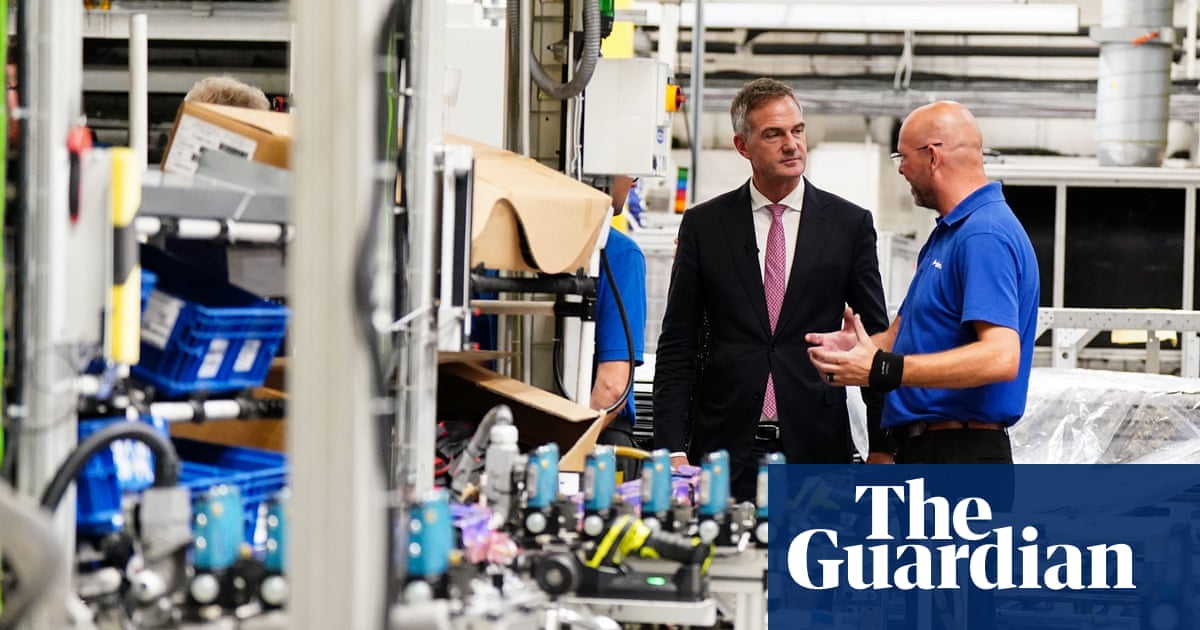JLR has restarted a limited number of computer systems after a crippling cyber-attack, but suppliers to the carmaker have told ministers they need financial support from the government within days to prevent permanent closures of parts factories.
The maker of Jaguar and Land Rover cars, Britain’s largest automotive employer, said it had regained the ability to repay suppliers, send parts to mechanics to repair vehicles on the road, and to send finished cars that were at its factories to showrooms.
The company also said that “the foundational work of our recovery programme is firmly under way”, although it was unable to give guidance on when its factories in the UK, Slovakia, India and Brazil would be able to reopen.
Suppliers to JLR are pushing the UK government for financial support to see them through the extended shutdown, although some have different ideas on what could be offered. Ministers are open to providing support, although there is still uncertainty over how quickly it can be introduced, according to one person close to the talks.
JLR has not been able to assemble cars since the start of the month, after cyber-attackers penetrated its computer systems. The company was forced to shut down most of the computer systems it uses to track parts, vehicles and tooling in its factories, as well as everything to do with actually selling its luxury Range Rover, Discovery and Defender SUVs.
Government ministers have been in near-daily contact with JLR and some of the companies in its supply chain to assess whether it can provide targeted support to prevent supplier collapses.
Analysts suggest that JLR will be able to survive, albeit at heavy cost. A report in the Insurer on Wednesday suggested that JLR had not bought cyber insurance cover, meaning it would have to absorb the cost. The production shutdown has proven disastrous for many of the companies in the manufacturer’s supply chain, which have had to cope with a sudden freeze in the cash coming into the business.
One option under consideration was that the government would buy parts made by suppliers, with the intention of selling them back to JLR when it resumes production of its vehicles.
However, suppliers on Tuesday told the business minister, Peter Kyle, and the industry minister, Chris McDonald, that the idea of buying parts would not work, according to two people with knowledge of a meeting at JLR’s engineering centre at Gaydon in the West Midlands. A government source said that paying for parts was only one of several options that had been considered.
“The package they suggested is completely inappropriate,” said one supplier. “We’ve gone back to them with a series of reasons it won’t work.”
Several other options have been suggested to the government. A group of suppliers has requested some form of furlough scheme up to 31 December, potentially with regular reviews, and a moratorium on tax payments to HM Revenue and Customs, according to one person with knowledge of talks.
McDonald said on Thursday that “government will continue to do everything we can to help JLR resolve this cyber incident and give reassurance to the supply chain”.
Some people involved in talks believe that the pace of redundancies and lay-offs could accelerate next week – a month after the crisis began – without clarity on support. Many smaller suppliers have already laid off workers, with temporary workers among the first to go.
after newsletter promotion
Unite, a union representing automotive workers, said on Thursday that another JLR supplier, Canada’s Linamar, was planning to lay off 40 workers. Unite’s general secretary, Sharon Graham, said: “Given the expectation of UK government intervention to safeguard jobs and skills, there is no justification for any lay-offs at Linamar.”
Linamar was approached for comment.
“There needs to be intervention,” said Matt Western, Labour MP for Warwick and Leamington, home to many JLR workers and suppliers. “The criticality of these individual companies can’t be underestimated. Even if the smallest widget or component within the manufacturing of a vehicle fails to be made and supplied, you can’t manufacture that vehicle.”
JLR has restarted payment systems in order to pay invoices for parts already delivered that had not been paid before the hack. The Guardian last week reported that payments had restarted using workarounds, but on Thursday JLR said it had “significantly increased IT processing capacity for invoicing” in order to “clear the backlog of payments to our suppliers as quickly as we can”.
The company also said its global parts logistics centre was “now returning to full operations”, so that existing customers will be able to secure parts for repairs, an important step to avoid alienating previous buyers.
JLR’s financial system for wholesale deliveries to retailers had been brought back online, it added, enabling it to start bringing in cash once more.
